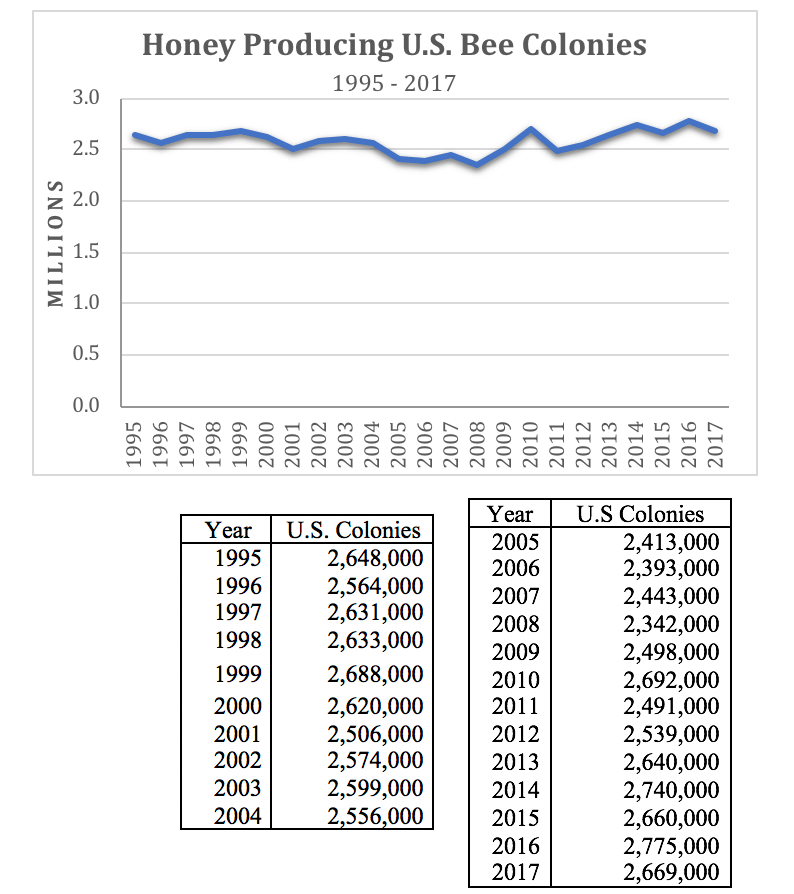The Bee Apocalypse Was Never Real
By Jon Entine at ACSH
If you were concerned after reading a sentence like “Populations of honeybees have crashed in recent years, and many researchers have pointed the blame at a class of widely used insecticides called neonicotinoids,” you are not alone. That’s how an otherwise excellent article in The Scientist summarizing a recent USDA study on honeybees’ molecular responses to neonicotinoids began.
But you needn't be. The narrative that honeybees, which are actually not even native to North America, Europe or Australia, face mortal danger and will take us down with them has been advanced by environmental groups for years and echoed in media, casual blogs and mainstream science sites. This twist on the news is so pervasive that it’s often accepted without question: bee populations are rapidly declining as a result of pesticide use, particularly the use of neonics, and the crucial pollinators could be edging towards extinction, plunging our entire food system into chaos.
- "Declining honeybee population could spell trouble for some crops," blared a headline on Fox News last year.
- "Death and Extinction of the Bees," was the banner claim on the activist Centre for Research on Globalization.
- "Honey Bees in a Struggle for Survival," claimed a guest columnist writing earlier this month for a Tennessee newspaper.
The only problem is that it isn’t true.
Myth of Honeybee decline
Honeybee populations haven’t “crashed” in the United States or elsewhere. Honeybees are not going "extinct." Crops are not "in trouble."

Source: USDA annual report on honey-producing colonies in the U.S. USDA publishes its final statistics one year after its preliminary estimates. USDA also collects a census, taken every five years in December, of honey-producing and non-honey-producing colonies. While not as valuable for tracking annual numbers, the census confirms the upward trend in managed bee colonies, with a 13.1% increase between 2007 and 2012.
The overall population of honeybees in the US, Canada and Europe has held steady or increased slightly since the widespread adoption of neonics in the 1990s. The US honeybee population hit a 22-year high in 2016, according to the figures released by the USDA before dipping slightly last year, and globally are at an all-time high.
Read more here

